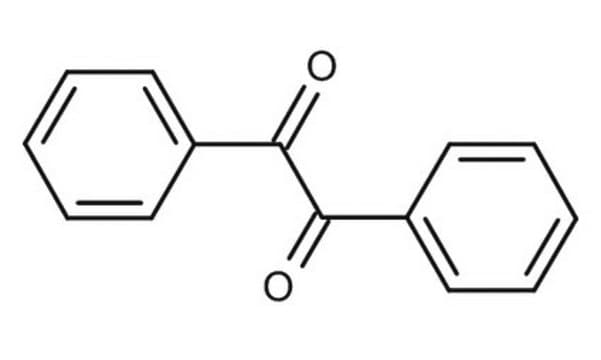1.06371
Sodium borohydride
for analysis
Synonym(s):
Sodium borohydride, Sodium tetrahydridoborate
About This Item
Recommended Products
grade
for inorganic trace analysis
Quality Level
vapor pressure
<1 hPa ( 25 °C)
autoignition temp.
220 °C
potency
160 mg/kg LD50, oral (Rat)
230 mg/kg LD50, skin (Rabbit)
expl. lim.
3.02 % (v/v)
pH
11 (20 °C, 10 g/L in H2O)
bp
500 °C (decomposition)
mp
>360 °C (slow decomposition)
transition temp
flash point 69 °C
density
1.07 g/cm3 at 20 °C
bulk density
350‑500 kg/m3
storage temp.
no temp limit
InChI
1S/BH4.Na/h1H4;/q-1;+1
InChI key
YOQDYZUWIQVZSF-UHFFFAOYSA-N
Related Categories
Application
- Sodium borohydride (NaBH4) as a high-capacity material for next-generation sodium-ion capacitors.: This study explores the use of sodium borohydride in sodium-ion capacitors, highlighting its large irreversible capacity and energy efficiency. The research is significant for chemists focusing on energy storage solutions and electrochemical applications (Open Chemistry, 2021).
- Hydrogen generation from sodium borohydride by sulfonated polymers.: This article investigates hydrogen production using sodium borohydride catalyzed by sulfonated polymers. It presents a sustainable method for hydrogen generation, essential for chemists working on clean energy technologies and fuel cells (Journal of Physics and Chemistry of Solids, 2020).
- PVP-Protected Pt-Ru Nanoparticles as Highly Efficient Catalysts for Hydrogen Generation from Hydrolysis of Sodium Borohydride.: The study examines the effectiveness of PVP-protected Pt-Ru nanoparticles in catalyzing the hydrolysis of sodium borohydride for hydrogen generation. This research is vital for chemists developing advanced catalysts for energy applications (General Chemistry, 2020).
- Dehydrogenation of sodium borohydride using cobalt embedded zeolitic imidazolate frameworks.: This research highlights the use of cobalt-embedded zeolitic imidazolate frameworks for the dehydrogenation of sodium borohydride. The findings are significant for chemists focused on developing efficient hydrogen storage and release systems (Journal of Solid State Chemistry, 2021).
- Multicolour room temperature phosphorescence of carbon nitride nanoparticles in sodium borohydride and borax matrix.: This study explores the phosphorescent properties of carbon nitride nanoparticles in a sodium borohydride and borax matrix. The research provides valuable insights for chemists working on advanced materials for optical and photonic applications (Materials Chemistry and Physics, 2024).
Analysis Note
Identity: passes test
Chloride (Cl): ≤ 0.5 %
Sulphate (SO₄): ≤ 0.005 %
Heavy metals (as Pb): ≤ 0.005 %
As (Arsenic): ≤ 0.001 %
Bi (Bismuth): ≤ 0.0005 %
Fe (Iron): ≤ 0.005 %
Hg (Mercury): ≤ 0.00001 %
Sb (Antimony): ≤ 0.005 %
Se (Selenium): ≤ 0.0002 %
Signal Word
Danger
Hazard Statements
Precautionary Statements
Hazard Classifications
Acute Tox. 3 Oral - Eye Dam. 1 - Repr. 1B - Skin Corr. 1B - Water-react 1
Supplementary Hazards
Storage Class Code
4.3 - Hazardous materials, which set free flammable gases upon contact with water
WGK
WGK 2
Flash Point(F)
Not applicable
Flash Point(C)
Not applicable
Certificates of Analysis (COA)
Search for Certificates of Analysis (COA) by entering the products Lot/Batch Number. Lot and Batch Numbers can be found on a product’s label following the words ‘Lot’ or ‘Batch’.
Already Own This Product?
Find documentation for the products that you have recently purchased in the Document Library.
Customers Also Viewed
Our team of scientists has experience in all areas of research including Life Science, Material Science, Chemical Synthesis, Chromatography, Analytical and many others.
Contact Technical Service












